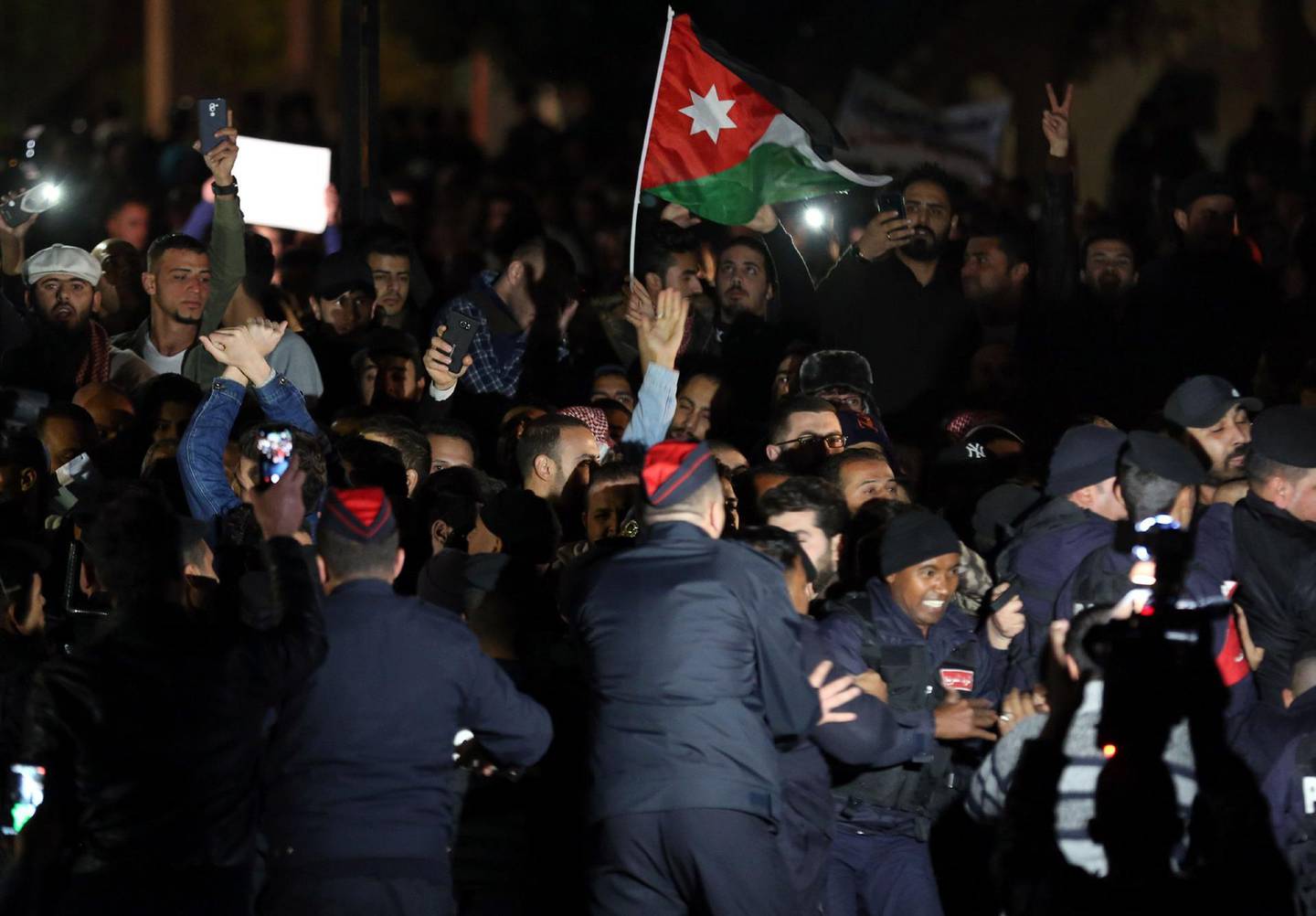Last weekend actions initiated by a strike of taxi and truck drivers came to a head in massive country-wide protests in Jordan following increasing costs for fuel. Large numbers of protesters blocked roads with burning tires and combatively confronted the police.
In comparison to last year, the price of fuel derivatives, particularly Diesel and Kerosene (important for heating), nearly doubled in Jordan having a significant impact on those working in the transportation of goods and people and leading to an increase in prices of general goods for everyone due to higher transportation costs. The situation is further aggravated by measured imposed by the International Monetary Fund (IMF). As if the situation for the people was not bad enough already, the IMF in their most recent “economic reform program” agreed with the Jordan Government to impose a cut back on subsidies for fuels, directly impacting the costs for daily demands in order to squeeze even more out of the people. Hence, taxi and truck drivers went on strike in December demanding a decrease in fuel prices and larger subsidies from the Government as they would otherwise loose their livelihoods.
Following the initiative of the transportation workers, protests erupted in many places in the country last week. Shops remained closed, cars were set ablaze, tires torched and roads, such as the main highway between the capital and the Dead Sea, were blocked in order to enforce the demands issued by the protesters.
The riot police attacking the protesters with tear-gas however met fierce resistance: In several proletarian neighborhoods, particularly in the three biggest cities Amman, Zarqa and Irbid, the police sent to disperse protesters was targeted by the youth with stones who defended the barricades they erected. At least 40 police were injured. Furthermore, one senior police official died beating down on protesters in Al Husseiniya as he was struck by a bullet to the head.

